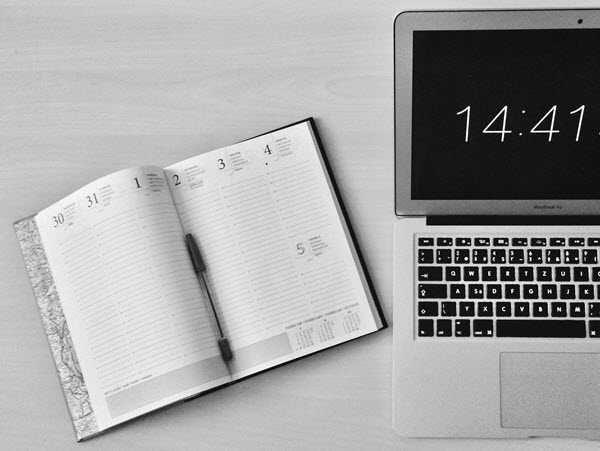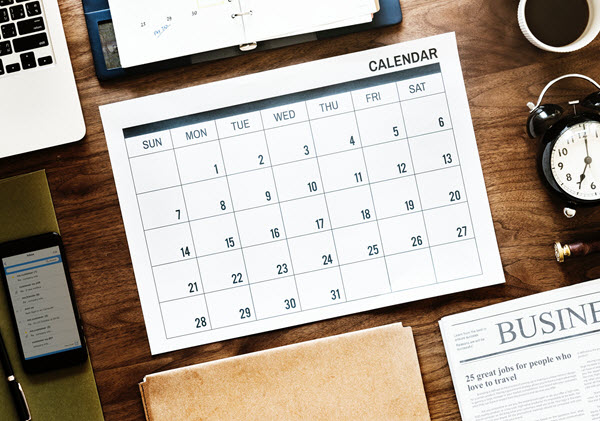Do you ever feel the need to be more productive and organized in order to accomplish much more than what you are doing right now?
Time management is one of the most important skills that you need to develop in life. With effective time management, you enable yourself to become more productive at achieving the goals and objectives assigned to you at work. You also get better in achieving the ones you assign to yourself in daily life.
In this particular article, you will find 10 useful and effective time management strategies that will boost your productivity dramatically.
Conduct a Time Audit
To acquire the skill of time management, you need to figure out where you spend most of your time and what you accomplish in that particular time. Track all your activities for a week and evaluate them to find areas that need improvement.
For example, if most of your time is utilized in unproductive meetings and low-priority tasks, try to reschedule your agenda. That way, you’ll bring more positivity in your daily routine so that you accomplish more than what you are currently doing.
Prioritize your work according to the weight and importance that each task carries. The most important and heavy tasks should be performed first so that you can relax your mind whilst performing the less important tasks.
Prepare for Meetings in Advance
When going to a meeting, be clear in the points that need to be addressed in the meeting. This will help you save precious time which you can use in other productive tasks.
In addition to this, share the meeting agenda with your colleagues and subordinates. This will help make sure that they know about the topics that would be discussed in the meeting.
Set Time Limits
Before you start performing a task, make sure that you set a timer for that particular task. This will let you know how long it will take to complete it.
By setting time constraints, you will focus more on your work and you are more likely to complete it on time. In case you still fail to complete your tasks in the given time, examine the workflow. Eliminate the unnecessary breaks to complete the tasks in a timely manner.
Plan Your Week

Plan your week on a Sunday so that you know your priorities. Make a full-fledged plan regarding the activities that you have been assigned so that you don’t forget anything.
After completing the tasks, mark them done in your notepad. This will allow you to simplify your assignments and you will have a better idea about the time you need to put in to complete your work.
Create a Daily Plan
Before starting with your daily routine, take a few minutes to make an outline of the tasks that are lined up for that day. This will enable you to know how much time you can spend on each individual task.
Moreover, knowing the time will help you gain motivation for the day and you will be able to perform better.
Most people find the first hour of their day more productive. If you are one of them, use this precious time to complete the most important tasks of your day.
Block/Ignore Distractions
When working on a high priority task, make sure that you enable the “Do Not Disturb” function in your smartphone and laptop. You can also go offline by logging out of all social media networking sites.
It is worth mentioning the fact that you should not consider multitasking when doing something important. When you multitask, you are dividing your attention into several other tasks and you lose focus.
Don’t Wait for Inspiration
Instead of waiting for inspiration, create the perfect environment for yourself to work. Waiting for inspiration is a waste of time and businessmen do not have time for such things because time is money.
Keep your mind busy and stay away from daydreams because these emotions also tend to waste your precious time. Similarly, instead of striving for perfection, strive for your best performance and perfection will automatically follow you.
Organize Your Messengers
Keep your inbox organized at all times because, with everything classified, you will be able to find the right email without wasting any time. People with cluttered inbox usually lose important information at the time when they need it the most.
In order to organize your messengers, you should:
- Keep your inbox clean
- Archive messages that are important but do not require immediate action
- Store the files attached in the messages in order to access them later when needed
- Use filters to assign labels to all the incoming and outgoing messages.
Use Your Calendar

Keeping a calendar at your office desk is always a good idea to keep track of your upcoming meetings, routine tasks, and events. Mark the tasks that are done and complete the ones that are left so that you can enjoy your leisure time doing fun activities.
You can also download a calendar app in your smartphone in order to know when exactly a certain task is due.
Balance Your Life
Take full responsibility for your work and take some time out to relax your mind. Research shows that relaxed and peaceful minds perform better than the ones that are always tensed up about work.
The key to a stress-less mind is a balanced life. Have a great time with your friends and family when you are not at work because you deserve it.
See Also: How To Increase Your Productivity By Harnessing Dead Time
Conclusion
Your time belongs to you
Therefore, instead of wasting it in unproductive tasks, utilize it to accomplish the goals that mean something to you. Delegate some tasks on your subordinates and teach them how to perform better. That way, you can spend your precious time doing something that others are not capable of learning and executing.
The post 10 Tips to Manage Your Time Effectively Under Pressure appeared first on Dumb Little Man.
from
https://www.dumblittleman.com/effective-time-management-strategies/












